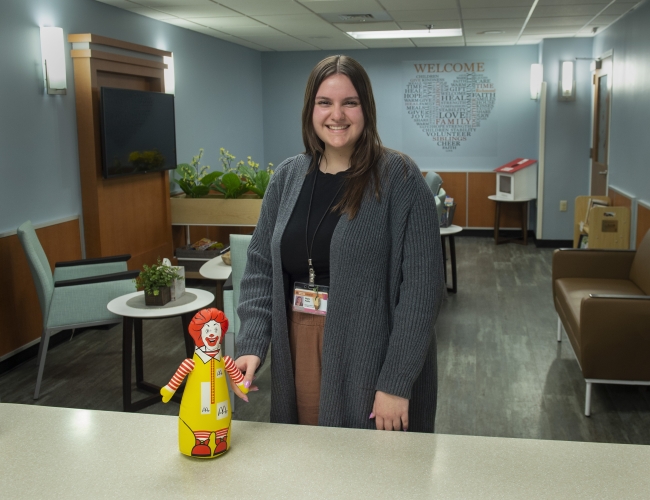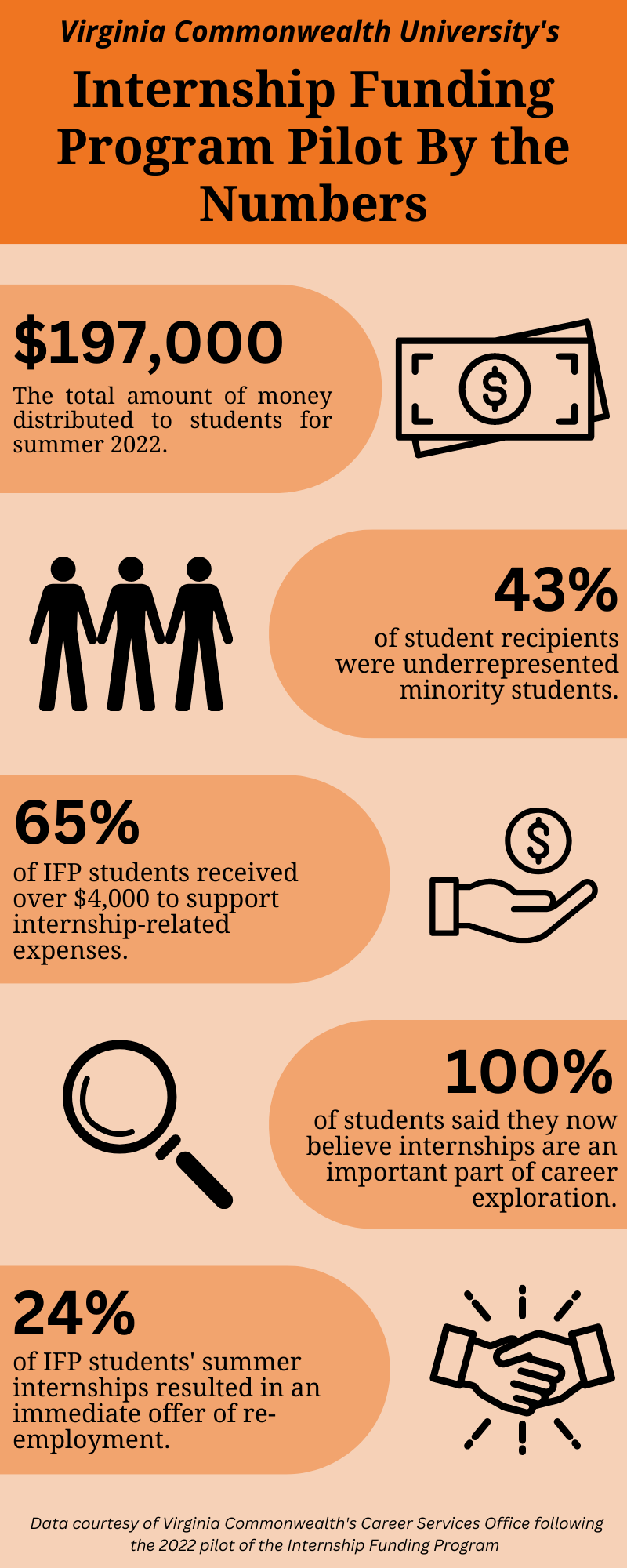You have /5 articles left.
Sign up for a free account or log in.

Through the Internship Funding Program, students at Virginia Commonwealth University received financial assistance, enabling them to engage in unpaid or underpaid internship experiences over summer 2022.
VIRGINIA COMMONWEALTH UNIVERSITY
In 2022, Virginia Commonwealth University joined other institutions in providing funds to students for unpaid or underpaid student internships and experiential learning through a pilot program focused on summer experiences.
Pulling from a $200,000 fund, the Internship Funding Program (IFP) initially reduced financial barriers to experiential learning for 51 students.
“To make something like experiential learning accessible, you have to think about the financial impact on the student to really make it a choice and option and opportunity,” says Samara Reynolds, director of VCU career services.
What’s the need: At VCU, many of the students are first generation, low income or underrepresented minorities. In 2020, career center staff wrote a white paper creating a case for paid internship funding and how different university sources could contribute to a fund.
“We were finding in our first destination survey data that the students who engage in internships are more likely to be employed full-time after graduation as well,” Reynolds says, reflecting a larger trend identified in a National Association for Colleges and Employers study published in January.
While higher education professionals agree that hands-on, experiential learning is critical to students’ personal and network development, the barrier of cost often prevents students from taking opportunities. Students who typically work for pay in their free time, especially, must choose between unpaid or underpaid internship experience or earning money for tuition and to support themselves.
“If an internship in an industry they want to engage with has an opportunity that doesn’t pay as much as what they’re making part-time or full-time working … or they just don’t have the opportunity to pause on the other elements of their life to engage in an internship, it simply isn’t going to be possible,” Reynolds says.
How it works: Applications for IFP open in mid-January, and students respond to a series of essay questions and provide a mock budget for their funding request.
The essay questions target a student’s financial need beyond financial aid status, Reynolds explains. “We know that a student filling out their FAFSA form and what their family’s estimated financial contribution does not tell the whole story of the money that they actually have available … especially during the summer, when financial aid doesn’t tend to apply.”
The budget worksheet helps students identify how much money they need, which in turn maximizes the career services team’s distribution of funds across applicants.
To be eligible, students should be applying for a specific internship program. VCU staff members ask that the student have an offer or be actively involved in the internship application process before requesting funds from IFP.
Then, applications go into a blind review process, in which faculty members and staff evaluate the information students provide and how this internship fund could contribute to career or academic goals. Reviewers come from across the campus community and follow a rubric to eliminate bias, Reynolds adds.
Around 147 students applied for their summer 2022 internship, and 51 students received funding.
After being selected, funding is awarded as a direct deposit in mid-May for a student to allocate to their needs as indicated that summer.
Students can receive up to $5,000, but awards have ranged from $600 to $5,000, based on specific requests and situations, Reynolds says. In the first year, 33 students received more than $4,000, and 19 of those received the full $5,000.

Scaling up: Following the pilot year, career services made a few changes to the application process and administrative workflow, Reynolds explains.
Staff launched a thorough frequently asked questions webpage to address student inquiries, rephrased essay questions to be more clear and made the required budget worksheet and info session details public.
This year’s applicants had to reach the interview round of their internship application to be considered for funding to shrink the odds of a change in plans after being awarded funds. VCU career services staff also extended the deadline for applying by about two weeks.
The total funds available grew, thanks to support from the VCU Student Life and Learning Fund, to $275,000, making the IFP able to support around 70 students.
This spring, 221 students applied to IFP, a result of increased advertising, liaisons on campus and targeting underrepresented student populations in the applicant pool, Reynolds says.
The IFP review team is growing as well, from just under 30 to over 40 reviewers for the second year, with increased representation of the university community, Reynolds says.
In the future, Reynolds hopes the program and its availability continue to grow to support internships not just in the summer, but year-round.
Seeking stories from campus leaders, faculty members and staff for our Student Success focus. Share here.




